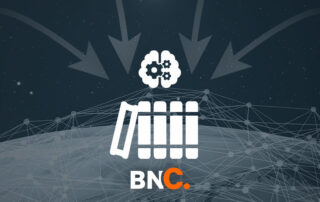The Department of Homeland Security (DHS) Small Business Innovation Research (SBIR) FY19 PreSolicitation
The Department of Homeland Security (DHS) Small Business Innovation Research (SBIR) Program, comprised of the Science and Technology (S&T) Directorate's SBIR Program and the Countering Weapons of Mass Destruction (CWMD) Office SBIR Program, invites small business concerns to review this pre-solicitation notice, which is intended to lead to the FY19 DHS SBIR Phase I solicitation.
Anti-counterfeiting blockchain app demoed at Shanghai Fashion Week
The bi-annual Shanghai Fashion Week is packed with almost 50 shows. As part of both the Shanghai International Fashion Culture Festival and supported by the Ministry of Commerce, the event is a growing business and a cultural event hosted by the Shanghai Municipal Government.
Kimberley Process pilots a blockchain for tracking the world’s diamonds
The recently published inaugural [Kimberley Process](https://www.kimberleyprocess.com/) (KP) [mid-term report](https://www.kimberleyprocess.com/en/system/files/documents/kimberley_process_mid-term_report.pdf) highlights key initiatives and includes a section dedicated to blockchain technology, detailing a proposal “which explores the use of blockchain technology to help enhance security measures.”
Consensus – Immutable agreement for the internet of value
This paper aims to provide an overview of how Blockchain and other distributed ledgers, specifically their underlying consensus mechanisms, have evolved over time. The consensus mechanism provides the technical infrastructure layer for blockchains. This makes it one of the most critical components when assessing real-world use cases. It is based on KPMG research as well as the results of interviews with more than 20 creators and corporate users of blockchains and other distributed ledgers. The paper will review how various distributed ledger consensus mechanisms continue to evolve and are currently being tested and, in some cases, implemented.
Mediachain adds integrity layer to online content
We live in an age where online content often has no attribution attached, from songs to cat gifs and HD movies. Sharing content has become so ubiquitous and easy that ownership information can be quickly lost and hard to track. It then becomes effortless to replace that information, compounding the problem further.
Social KYC for Cryptocurrencies
This paper offers some ideas about identity verifi cation in an online world. It explores some common challenges when using traditional methods, and will introduce a new approach â social KYC, using a personâs digital footprint and online social identities to instantly verify and authenticate their identity with a high degree of confidence. This approach can also be used to reduce fraud and to manage compliance requirements as a complementary approach with other forms of KYC and IDV as required.
Authenticating academic certificates on the Bitcoin blockchain
Holberton School recently announced a partnership with [Bitproof](https://bitproof.io/), becoming the world's first school to deliver academic certificates secured and accessible via the blockchain, the technology behind bitcoins.
Digital Art Ownership Tracked With Bitcoin’s’ Blockchain Technology
The battle digital artists face when using the internet has been hard fought for decades. Monegraph hopes to solve licensing issues with an easy to use online platform, leveraging Bitcoins blockchain.
Ascribe Is Giving Away Artwork Recorded In Bitcoin’s Blockchain
A startup based in Germany is giving away digital photographs created by an American visual artist, which are cryptographically signed and verified on the blockchain.






